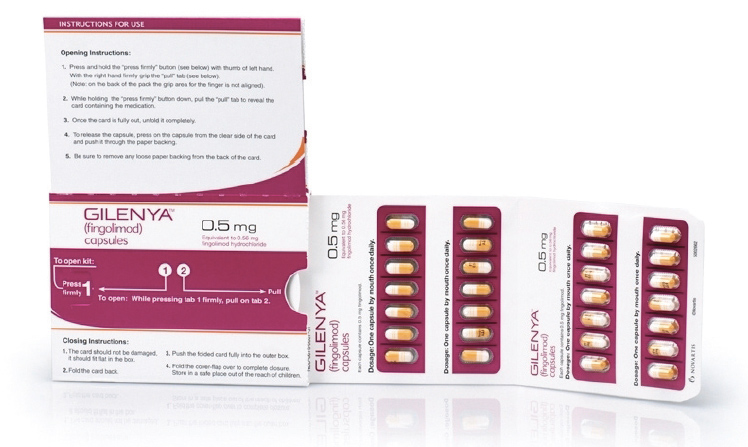Novartis plans filing for Gilenya in paediatric MS

Novartis is planning a filing for its Gilenya multiple sclerosis drug after a late-stage study showed it reduced multiple sclerosis relapses compared with standard care in children.
The company's paediatric phase 3 PARADIGMS study met its primary endpoint, showing a significant reduction in relapses in patients treated with Gilenya (fingolimod) versus Biogen’s Avonex (interferon beta 1a).
It is the first randomised controlled phase 3 study of a disease modifying therapy in paediatric MS, and will help Novartis expand its franchise.
Most people who develop MS experience their first symptoms between the ages of 20 and 40, but the disease strikes an unlucky few (around 2-5%) before 18.
Gilenya, like many of the newer MS drugs, is currently not approved for paediatric patients, and Novartis will discuss the data with health authorities after a thorough analysis.
The drug is one of Novartis' top sellers, and is on course to grow strongly this year to over $3 billion in revenues.
Nevertheless, competition is fierce in the field, with Roche's Ocrevus joining the fray earlier this year.
PARADIGMS is a flexible duration, double-blind, multi-centre evaluating safety and efficacy of Gilenya compared with interferon beta-1a in children and adolescents with MS, lasting for up to two years.
The study enrolled 215 children and adolescents with MS, between the ages of 10 and 17 years with an Expanded Disability Status Scale (EDSS) score between 0 and 5.5.
Patients were randomised to receive once-daily oral fingolimod (0.5 mg or 0.25 mg, dependent on patients' body weight) or intramuscular interferon beta-1a once weekly.
Primary endpoint was the annualised relapse rate in patients treated up to 24 months, and secondary endpoints include the number of new or newly enlarged T2 lesions, Gadolinium enhancing T1 lesions, safety and the pharmacokinetic properties, measured throughout the treatment period.
PARADIGMS was conducted in 87 sites over 25 countries and was designed in partnership with the FDA, the European Medicines Agency, and the International Pediatric Multiple Sclerosis Study Group.
Results will be presented at the joint ECTRIMS-ACTRIMS meeting in Paris next month.
[caption id="attachment_23888" align="alignnone" width="135"] Vas Naramsimhan[/caption]
Vas Naramsimhan[/caption]
Vas Narasimhan, Novartis’ global head of drug development and chief medical officer, said: "With no specifically approved treatment options based on a thorough study such as PARADIGMS, the risk of long-term disease progression in these patients is much greater. The outcome of this study is very exciting news for the MS patient community, all of whom benefit from potential advances in high-quality, evidence-based care such as this.”
The company announced yesterday that Narasimhan will take over as CEO when Joe Jimenez steps down next year.













